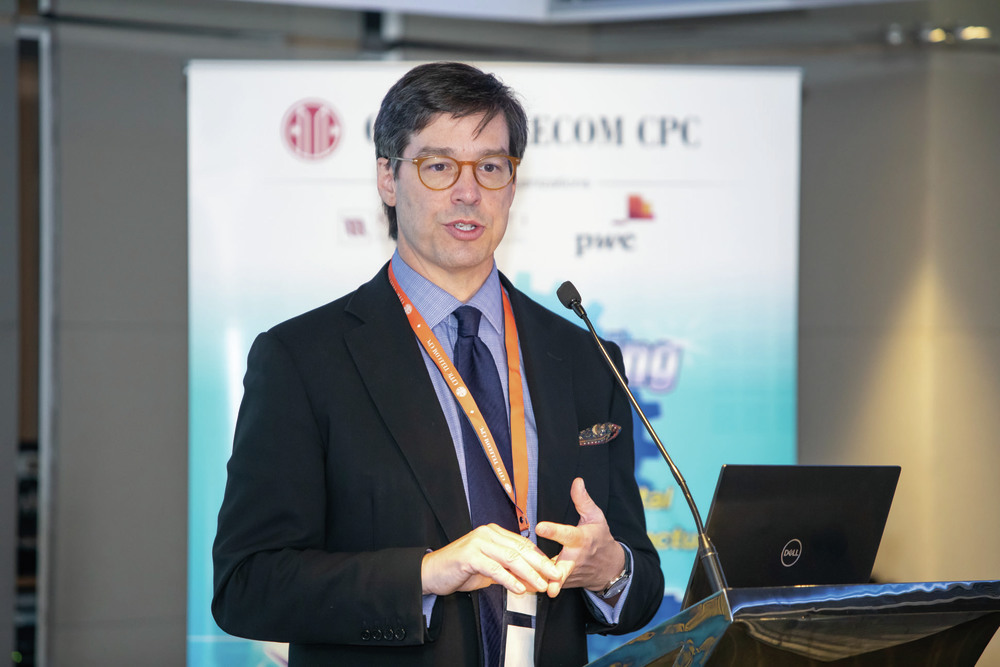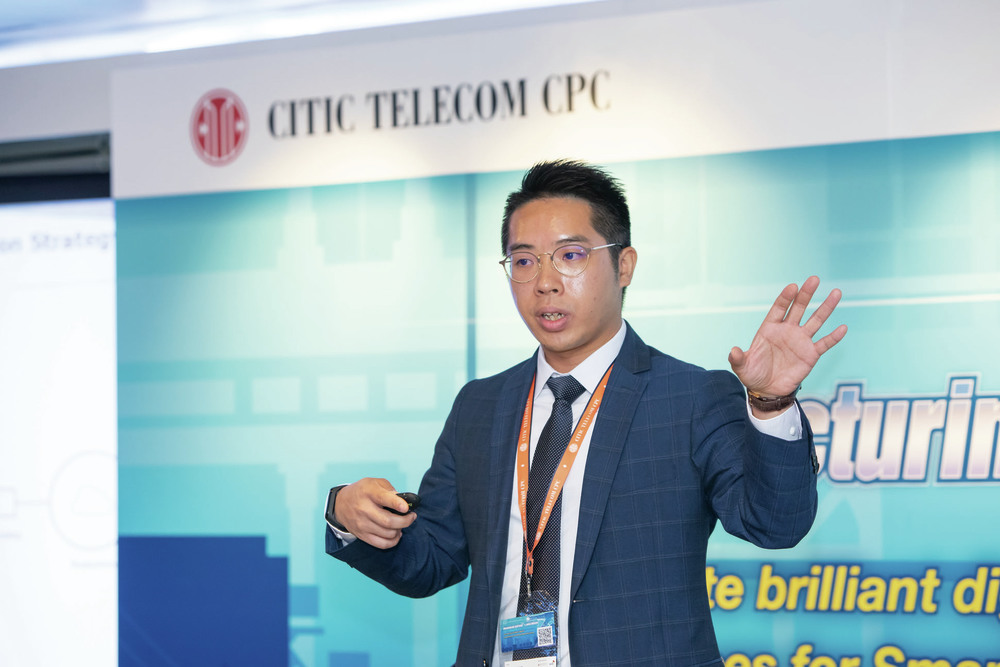The new age of smart manufacturing
CITIC Telecom CPC gathered top experts from the manufacturing industry to share their insights at its exclusive luncheon earlier in September.
![智慧工業新世代 (只限英文版)]()
Today’s manufacturing industry is drastically different from before. With customers demanding not only better quality products but also faster delivery at the same time, emerging technologies such as AI and IoT are causing major shifts within the industry that are capturing the attention of manufacturers.
![智慧工業新世代 (只限英文版)]()
Kick-starting the luncheon, Jan Nicholas, Partner, PwC, shared his expert opinion of how smart manufacturing is beginning to dominate the industry in today’s digital era. “Smart manufacturing presents a massive opportunity, and the industry is beginning to notice that,” said Nicholas. “Our 2020 survey shows that 91% of industrial companies are investing in digital factories and 6% of companies are already fully digitised. Furthermore, 85% of manufacturing companies have expressed that they will continue to invest in smart manufacturing, recognizing its massive potential.”
“Take Germany and Japan as examples. Both of these countries have a high trade surplus, but also high wages. This is rare, and smart manufacturing is how they have achieved this,” continued Nicholas.
Digitalisation allows smart manufacturing to increase production efficiency, giving manufacturers a distinct competitive edge. However, Nicholas stressed that there is no quick return on the investment. “Needless to say, increasing efficiency in production is the main reason for expanding digital factories, and local factories are definitely more efficient than offshore factories due to logistics, but this requires careful research and development, and does not happen overnight. Patience and perseverance is key,” added Nicholas.
He advises companies to focus on 4 key aspects when pursuing digital transformation. Strategy- systematically build strategic planning and evaluate core competence and choose the right technology to fit into real situations rather than blindly introducing cutting-edge technology. Technology- digitise the entire process instead of a single step by integrating data from different systems. Implementing digital transformation by phases will also help minimise risk and impact on business and operation. Benefit- do not consider the benefits of digitalisation solely from the return on investment, establishing quantitative and qualitative performance indicators to evaluate the benefits, and finally, Talents- digital manufacturing transformation must be led by senior management. Companies should focus on building talents with digital skill sets.
![智慧工業新世代 (只限英文版)]()
Next, Alex Ma, Manager, Cloud Solutions Architect, CITIC Telecom CPC, explained how companies can automate their manufacturing business with one-stop managed Cloud services.
“Many enterprises recognize the benefit of multiple cloud platforms, and the majority of them are using more than 4 cloud platforms,” said Ma. “According to the Industry Cloud Tracker (IDC), the five largest industry groups are expected to spend a total of US$37.5 billion on industry cloud solutions in 2018 with manufacturing growing the most. This really shows the potential of multi-cloud platforms in manufacturing.”
Nevertheless, he also identified that multi-cloud is going to be a hurdle to overcome in the future. “As the reliance on technology increases, more tech-savvy employees to ensure smooth operations and to govern the platforms will be demanded, and there is a clear shortage of these talents,” continued Ma.
A captivating panel discussion during the luncheon gathered industry experts to exchange their insights on the challenges and recommendations to transform into smart manufacturing.
“Being the manufacturer, we are definitely trying to adopt smart manufacturing, lots of companies are very bogged down by the hardware and software aspect, but the most important thing is actually the people,” said Byron Yeung, Vice President, Far East, Mainetti. “Most of the hardware in the industry is quite advanced, and it is how you can fully utilize them with the existing people that is the challenge.”
Henry Yeung, Product Marketing Director, CITIC Telecom CPC, also identified people as a difficult factor when moving towards smart manufacturing. “When companies don’t have a dedicated IT team, they sometimes have to rely on local service providers, this however creates problems as expectations of quality and respond time are all different from region to region. That’s why having reliable IT professionals from service providers with global exposure and local support are important before moving forward,” said Henry.
Angus Ho, Head of Digital Integration Services, HKPC, stresses the importance of funding when it comes to digital manufacturing transformation. “Focus on C.A.S.H., C- Connectivity, A- Analytics, S- Sensors and IoT devices, and most importantly, H- Human Machine Integration,” said Ho. “The human hurdle is a significant thing to overcome and directly influences the success of transformation. Even though we are moving towards automation, manufacturing still includes a human component, and having the right people who can drive and cope with innovation is crucial.”
How do you think the future of manufacturing will become?








